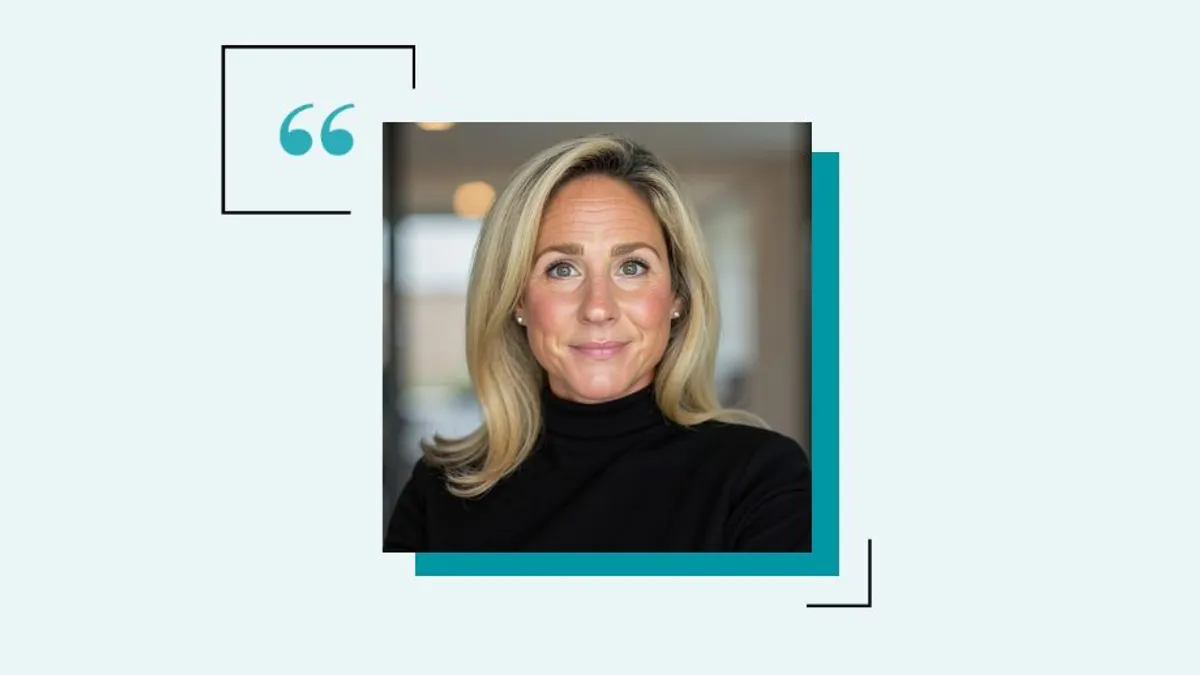The lawyers are flying lazy circles over Houston.
On Friday a federal judge ruled that former Enron Corp. executives and lenders must face investor lawsuits seeking $29 billion in damages related to the energy company’s collapse. U.S. District Judge Melinda Harmon denied a motion to dismiss the claims.
The decision paves the way for plaintiffs to go after ex–Enron executives. It also means Enron shareholders can sue outside parties, including Citigroup Inc. and J.P. Morgan Chase & Co. — and even pursue such sensitive evidence as confidential bank records. “We plan to focus on the role of the investment banks and their top executives in perpetuating this fraud on investors,” William Lerach, who represents the plaintiffs, told Bloomberg.
For months, Enron executives, investment bankers, officials of Arthur Andersen, and others have reportedly filed motions to dismiss the consolidated fraud suit, saying it wasn’t specific in detailing how the fraud was committed and who was responsible.
But investors have alleged that Enron executives, with the help of a number of powerful investment banks, manipulated the company’s books to hide debt and inflate earnings.
Lawyers for the University of California Regents will likely move aggressively against Enron’s former business partners. The regents for the university, which lost $145 million in pension funds invested in Enron stock, are lead plaintiffs in the consolidated fraud suits.
The regents are expected to seek internal memos and E-mails written by former Enron CFO Andrew Fastow about the partnerships, according to Bloomberg.
The lawyers for the regents are also expected to try to uncover more evidence that bankers with Citigroup and J.P. Morgan Chase, who funded Fastow’s Enron-linked partnerships, knew the entities were designed to hide debt and inflate earnings.
It has already been publicly reported that lawyers representing Enron employees have discovered E-mails that they claim boost their case that the investment banks helped Fastow construct the partnerships.
Enron’s former auditor, Andersen, has already been convicted of obstruction of justice.
Other defendants reportedly include Merrill Lynch & Co., Bank of America Corp., and Credit Suisse First Boston. All have denied any wrongdoing.
Harmon dismissed claims against Deutsche Bank AG and Kirkland & Ellis, the Chicago-based law firm that provided advice on an off-balance-sheet partnership.
However, Houston-based Vinson & Elkins, Enron’s former principal law firm, wasn’t as fortunate. The judge ruled that the Enron plaintiffs can include that firm in the suit.
Frankel’s Accountant Pleads Guilty
An accountant who was accused of playing a major role in financier Martin Frankel’s scheme to defraud insurance companies has pleaded guilty to federal money-laundering and conspiracy charges, according to the Associated Press.
Gary Atnip, 51, who played the role of chief financial officer at various insurance companies that Frankel acquired from 1991 to 1999, was accused of helping defraud insurance companies in five states out of more than $200 million.
Atnip admitted helping transfer $200 million from the insurance companies to Frankel’s Swiss bank accounts, according to the AP’s account of Friday’s court appearance.
Atnip also reportedly admitted he hid Frankel’s involvement from federal and state regulators.
Prosecutors said Frankel paid Atnip $1 million.
Frankel pleaded guilty in May to stealing the money from insurance companies in Tennessee, Mississippi, Arkansas, Missouri, and Oklahoma.
Back in 1999, Frankel was the target of a worldwide manhunt when he fled a two-mansion compound in Greenwich, Connecticut. He was finally arrested four months later in Germany.
About $70 million to $80 million of the ill-gotten money has been recovered, including $30 million from a Swiss bank account, according to the AP, citing prosecutors.
Atnip became the 10th defendant in the case to plead guilty.
He faces up to 40 years in prison when he is sentenced March 10. Under a plea agreement, however, prosecutors reportedly plan to seek a term of up to 10 years in prison, and $208 million in restitution.
HR Services Company Fires Auditor
Management at human resources-services company TeamStaff Inc. reported that it dumped PricewaterhouseCoopers LLP as its outside accountant. TeamStaff hired PwC about eight months ago, after firing Arthur Andersen as the company’s independent auditor.
But TeamStaff management noted that PwC advised the company’s audit committee that TeamStaff’s accounting treatment for its supplemental retirement plan was incorrect, requiring a restatement of its fiscal 2001 financial statements.
PwC also warned TeamStaff’s audit committee about problems with the company’s internal controls, “including the adequacy, competency and reliability of operational and financial information, information systems and finance personnel,” said the company.
On the advice of PwC, TeamStaff relieved chief financial officer Donald Kelly of his duties. TeamStaff also announced that it hired Lazar Levine & Felix LLP as its new outside accountant. “The company is committed to improving its internal controls, and is reevaluating systems and personnel with a view toward implementation of any appropriate corrective action,” added TeamStaff management in a press release.
(August 2004 clarification: The TeamStaff 10-K filed February 10, 2003, for the period ending September 30, 2002, included a section headed “Reconsideration of Status of CFO.” In part, it stated: “TeamStaff determined that the conclusions reached by PricewaterhouseCoopers concerning TeamStaff’s internal controls and financial personnel were not supported by Lazar’s independent analysis or TeamStaff’s own assessment of its financial and operations systems. Mr. Kelly has remained an employee during this period….” By his account, Kelly became vice president of strategic business development at the request of the board; he later resigned from TeamStaff, effective in July 2003. In the same 10-K, the company reported that Lazar found that the accounting treatment for the supplemental plan had been correct. Nevertheless, the audit firm found that a restatement for 2001 was appropriate because certain plan disclosures had been left out and because of an adjustment in the expense calculation of the plan.)
More Accounting Problems for Xerox
Xerox Corp. once again has an accounting problem.
The document and copier copy indicated it discovered an error in the calculation of its noncash interest expense related to a debt instrument and associated interest rate swap agreements.
In a statement, the company’s management said the error occurred with the adoption of Financial Accounting Standard No. 133 in January 2001, and resulted in an after-tax understatement of interest expense of about $5 million to $6 million. That works out to less than a penny per share for each of the four quarters of 2001 and for the first three quarters of 2002.
To adjust for these items, Xerox said it will restate its 2001 financial reports and revise 2002 quarterly financial information.
This development is just the latest involving Xerox and accounting issues.
Back in April the company agreed to restate its financials from 1997 through 2000, as well as adjust 2001 results as part of a settlement with the Securities and Exchange Commission. It also agreed to pay a civil penalty of $10 million.
That restatement mostly reflected adjustments in the timing and allocation of lease revenue recognition, and the company said at the time that it could involve a reallocation of equipment sales revenue in excess of $2 billion from 1997 through 2000.
Former Exide CEO Sentenced
Yet another former top executive is headed for prison.
Arthur Hawkins, the former chief executive of Exide Technologies, was sentenced to 10 years in jail for his part in a scheme to sell defective batteries to Sears, Roebuck & Co. in the 1990s, according to the Associated Press.
Hawkins also was ordered to pay a $1 million fine and submit to three years of court supervision after his release from prison, according to the wire service’s account of a statement made by U.S. Attorney Miriam Miquelon.
Former Exide president Douglas N. Pearson is also scheduled to be sentenced.
The two men were convicted in June of wire fraud and conspiracy to commit wire fraud in what prosecutors reportedly called a massive scheme to sell defective Exide batteries to Sears for its DieHard line in the mid-1990s.
Exide Illinois was ordered to pay $27.5 million in fines after pleading guilty to consumer fraud in March 2001, according to the report.
Exide Technologies, once the largest maker of batteries, filed for Chapter 11 back in April.
Hawkins, Pearson, and former Exide chief financial officer Alan Gauthier bribed Gary Marks, a former Sears merchandise buyer, with $100,000 in payments to sell Exide batteries they knew were defective, according to the AP’s account.
It noted that thousands of the defective batteries were sold nationwide under the DieHard brand until Sears severed relations with the company in 1997.
Gauthier pleaded guilty to wire-fraud charges in March 2001 and was sentenced to five months in prison and ordered to pay a $30,000 fine.
In August, former Exide vice president Joseph C. Calio III and Marks were sentenced to three years’ probation and ordered to pay $10,000 each after pleading guilty to consumer fraud.
And Sears Automotive Marketing Services Inc., a subsidiary of Sears, Roebuck, was charged with consumer fraud in December 2001 for misrepresenting the batteries. The company agreed to cooperate with investigators and to pay $62 million in fines in exchange for prosecutors considering dismissing the charges in 18 months, said the AP report.
Short Take
In another high-profile accounting scandal, the Wall Street Journal reported Friday that discussions between prosecutors and WorldCom Inc.’s former chief financial officer, Scott Sullivan, are unlikely to draw a direct link between former CEO Bernard Ebbers and the company’s accounting improprieties.




















